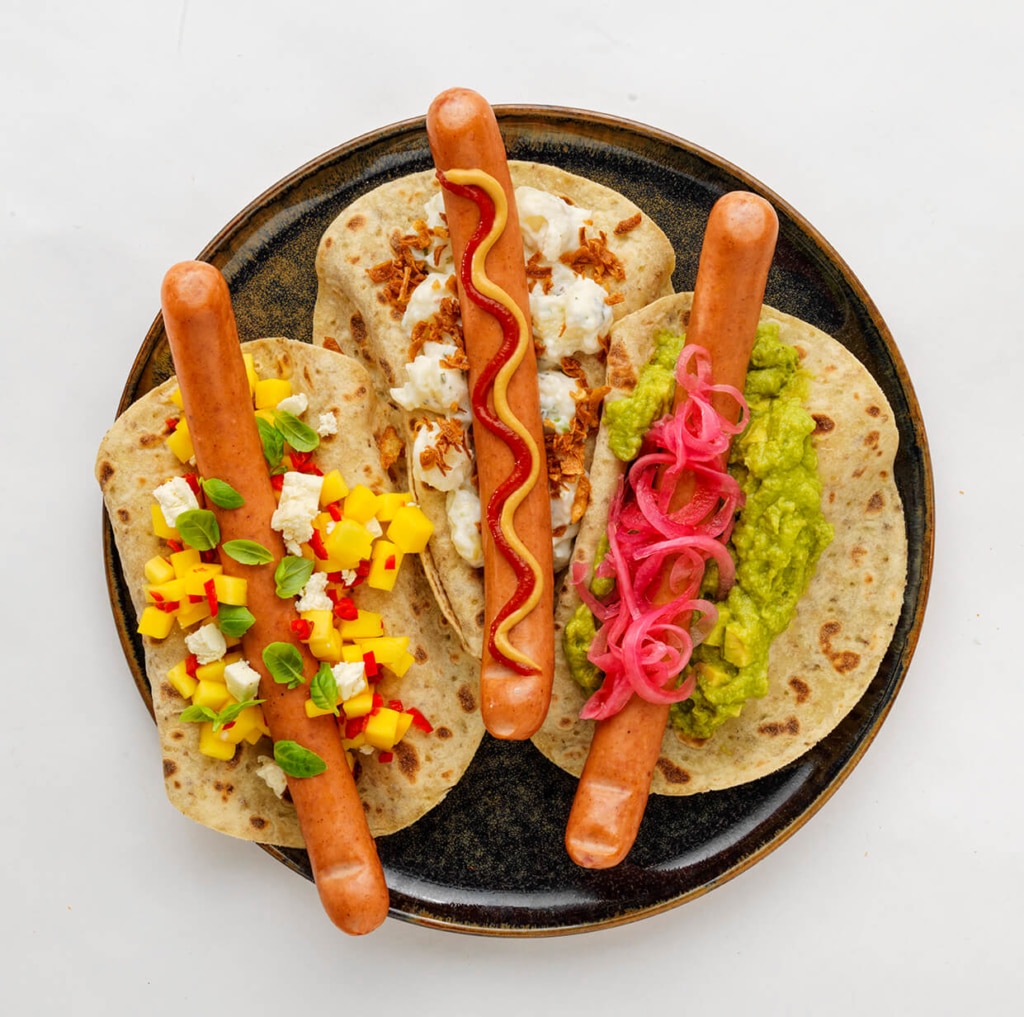
2021 in numbers
- 223 MNOK Revenue: Leiv Vidar
- 282 MNOK Revenue: Finsbråten
- -7 MNOK EBIT (adj): Leiv Vidar
- 17 MNOK EBIT (adj): Finsbråten
- 4794 Production volume (1)
- Hønefoss, Eidsvoll Locations
- 73 No of employees: Leiv Vidar
- 30 No of employees: Finsbråten
- 44 % Share of female employees: Leiv Vidar
- 62 % Share of female employees: Finsbråten
- 50 % Share of female managers: Leiv Vidar
- 0 % Share of female managers: Finsbråten
- 7.6 3.0 / 4.6 % Sick leave: Leiv Vidar Short term/long term
- 10.0 2.0 / 8.0 % Sick leave: Finnsbråten Short term/long term
Who we are
Leiv Vidar was established in 1950 by sausage maker Leiv Vidar. Since then, we have been working on making the very best sausages. The following year, in 1951, Finsbråten was established. Then the brothers Osvald, Frank and Kåre Finsbråten started making meat products in the basement of the small farm at Eidsvoll. Together, Leiv Vidar and Finsbråten are a significant producer of meat products in Norway.
Through a strong focus on water and training in water usage, we have also managed to reduce the number of liters per kilo product produced. The consumption of water depends largely on what you produce. For example, stuffing products usually result in greater water consumption than cold cuts, but the focus has nevertheless led to a reduction.
A snapshot of Leiv Vidar and Finsbråten in 2021
In 2021, we reduced the salt content in all Wiener sausages, cheese sausages and grilled sausages and started removing nitrite in all sausage variants. In addition we also launched meat sausages without preservatives.
We removed carbon black film from bacon and Knäcker in 2021, coming into effect in 2022. Carbon black is a product from crude oil. It gives a very even and good black color, which makes a good light filter for packaging. The disadvantage is that it is difficult to sort plastic that is colored with carbon black.
Leiv Vidar and Finsbråten have been collaborating with Menova on work training and internships and look forward to continuing this work in 2022. We think it is very important to train young people in meat production skills and pass on our knowledge, and therefore we always have an apprentice working with us.
We invested 1 MNOK in new ventilation and heat recovery in sausage production with an automated setting for use so that use is optimized. A good reduction in energy consumption and GHG emissions is expected in 2022.

Sustainability going forward
We have initiated and implemented several measures related to sustainability in recent years, and we can point to many measures with good results. This applies to our product range, our way of producing and sourcing goods and also how we are involved with our local communities. Going forward, we will work even more systematically and continue to track and report our progress in line with the requirements from Scandza. Furthermore we will run our business aligned with the Scandza governance framework and participate in all centrally organized initiatives.
1Products includes chips and chocolate, the Poppa range of healthier snacks, as well as house brands like Bondens (Rema 1000) and Tynn&Sprø (Norgesgruppen)